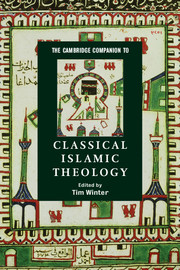15 - Eschatology
from Part II: - Themes
Published online by Cambridge University Press: 28 June 2008
Summary
Given the great interpretive diversity within Islam and the absence of a central institution that might limit and define authoritative doctrine, throughout Islamic intellectual history the tension between literal approaches to revelation and the interpretive limitations of human reason as respective sources of truth has been a recognised constant. Even today, disagreements on eschatological teachings often echo the early debates of ninth-century Baghdad between the Mu'tazila and the literalist Hanbalites, or reflect other tensions that emerged at various intermediate points of that spectrum. While the Qur'an and the prophetic legacy are the shared sources of all legitimate Islamic doctrine and symbolism, they have throughout history been read in disparate ways, reflecting sectarian and interpretive divergences. It would therefore be futile to present Muslim theological positions on eschatology as if there were a consensus regarding each detail of what is expected at the end of time. By their very nature, eschatological doctrines test the limits of our rational and customary experience, thereby reminding us of the fragility of our attachment to conditions that strike us now as unquestionably real.
- Type
- Chapter
- Information
- The Cambridge Companion to Classical Islamic Theology , pp. 308 - 324Publisher: Cambridge University PressPrint publication year: 2008
- 3
- Cited by

